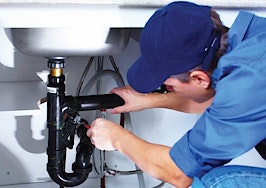- Keep it simple.
- Build a solid foundation.
- Learn from those who have gone before you.
So you got your real estate license. Now what? Here’s a guide to help you through your first year as a real estate agent, from A to Z.
A: Authenticity and action
Please, be yourself. You will gain rapport and clients infinitely faster by being true to yourself. Not a salesy phone guy? Then, it would be weird for you to be a salesy phone guy.
Techy and analytical? Then be techy and analytical. You’re an MBA? Then be MBA-like in your real estate practice. Show up with the best version of yourself, and get into action.
[Tweet “You will gain rapport and clients infinitely faster by being true to yourself. “]
B: Business and budget
You’re prepared to treat this like a business. Know your base expenses, have a target net income, do the math to figure out how many sales you need to hit your numbers and run your schedule like a business pro by getting the most important things done first every day (see L).
C: Coaching
Shorten your learning curve — get a coach.
D: Your database is your business
Love on your database by staying in touch, asking for their referrals and delivering value.
E: Energy and extroverts
You’re in a sales business. How is your natural energy? The vast majority of successful real estate agents are extroverts and show up with solid energy. If you’re an introvert, get super real on your goals and don’t let anything get in your way.
F: For sale signs
You need your sign in as many yards as possible. You will build your business faster by focusing on sellers, rather than buyers.
Why? Because listings for sale will attract buyers and other sellers — it’s how you gain leverage. Sellers will attract other client opportunities; buyers might attract other client opportunities.
[Tweet “Sellers will attract other client opportunities, buyers might attract other client opportunities.”]
G: Goals, write them down
It becomes your GPS and will guide your work day.
H: Happy
Seriously, happiness as a business principle. If you’re not showing up happy, you’ll have trouble attracting clients and conveying confidence. Figure this one out, stat.
I: Independent contractor
Most real estate agents are independent contractors. This means you are your own boss. Have you ever been your own boss? Surround yourself with folks succeeding at a high level, and create some accountability around how you’re running your business.
J: Jump
Don’t get caught in the fear-based “fixing to get ready to get started.” Quickly jump into the lead generation business model. If you wait until everything is perfect and you feel comfortable, you’ll be too late.
Surround yourself with people who will help you, and jump in with a single mindset of finding clients quickly.
[Tweet “Surround yourself with people who will help you, and jump in.”]
K: Knowledge base
Build this as quickly as possible. Contracts, contract-to-close process, market stats, neighborhoods and schools, what to say and nuance awareness. This all takes time and experience.
Make sure you build time into your schedule to build your knowledge base faster than everyone else and surround yourself with professionals willing to share and available to answer questions.
L: Lead generation and lead follow-up — possibly the two most important things in your business
Build systems and consistency with both of these. This is the foundation of a successful real estate business.
M: Call your mother
Client leads might be closer than you think. Pick up your phone and be very purposeful with your parents, siblings, BFFs, former colleagues, soccer league and neighbors.
These folks are already in your phone. Call these people, then call them again. Keep them current, share your goals with them and ask for their referrals.
N: No
Learn how to say no. You cannot be everything to everyone. You cannot be on-call 24-7. You should not show 50 homes to one buyer.
You should rarely list an over-priced property, and you are not the right match for every buyer or seller lead that shows up.
O: Open houses
Open houses can be your quickest route to buyer and seller leads. And the folks who want through the door have no idea that you are new.
Hold other agents’ listings open, study that neighborhood like your life depends on it and engage, engage, engage, follow-up, follow-up, follow-up.
I know very successful agents who built their businesses by doing open houses every day.
[Tweet “Open houses can be your quickest route to buyer and seller leads.”]
P: Power score
How are you showing up in this world? Your power score is that somewhat intangible yet moderately palpable thing that combines your energy, your confidence, your eye contact, your voice, your posture, your motivation, your nutrition, your internal dialogue — simply, how you’re showing up in this world.
Basically, your confidence and mojo need to be in the medium-to-high range in all your interactions.
Q: Questions — ask a lot of them
The person asking the most questions is in charge of the conversation. Know the 20 questions you ask every buyer and the 20 questions you ask every seller.
R: Relationships and referrals
Build both of these.
S: Sales manager
You are the national sales manager of your real estate business. What does a sales manager do? He or she sets a goal for the sales team and then makes sure the team hits the goal. When a sales manager misses goals, he or she gets fired.
T: Talk
You are in the business of talking to people about real estate. The person with the most conversations, wins.
U: Understanding clients’ needs
This builds relationships and referrals. How do you do this? See Q.
V: Validate, and verify buyers and sellers
This means asking a lot of questions. This means doing a comprehensive, usually in-person, consultation before agreeing to work together.
You only have so many hours in a day and week, you need clarity and a plan to make sure everyone’s needs get met.
W: What to say
Why should I hire you? Will you lower your commission? We want to look at a house $50,000 over our budget. Why should we stage? We will only accept a full-priced offer.
You need to have a solid answer to these common situations and 20 more. Put in four to five hours per week every week your first year practicing what to say.
X: Experience
Get your first six clients under your belt absolutely as quickly as possible. You might need to partner up with an experienced agent for your first few transactions — better to split the commission than risk not getting the job.
Confidence can be slightly elusive at first; getting those first six clients happy and closed will do more for your knowledge base and confidence than any training out there.
Y: Your big why
Why real estate? Why independent contractor? What motivates you to succeed in this business? Money? Independence? Building a college fund? Proving yourself?
Clarity on your big why will push you through the habits and rough spots.
Z: Zzz — you snooze, you lose
Put a price tag on your average transaction in your area; what is the commission on the average priced home in your market? Any missed opportunity, slow or lacking follow-up, failure to purposefully ask for the business and referrals, slow response time on internet leads, not knowing what to say — all of these are expensive mistakes in real estate.
This A to Z guide will help you navigate your first year in real estate. Good luck.
Julie Nelson is the chief success officer at The Nelson Project, Keller Williams Realty in Austin, Texas. You can follow her on YouTube or Twitter.




